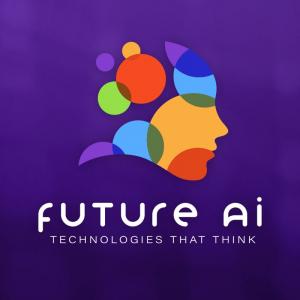Future AI Provides Grant to Temple University AGI Research Project
NARS Project Expected to Strengthen Future AI’s Graph-Based AI System
WASHINGTON, D.C. , DISTRICT OF COLUMBIA, UNITED STATES, November 15, 2022 /EINPresswire.com/ -- Future AI has provided a grant to Temple University’s NARS project – one of the most successful artificial general intelligence (AGI) systems currently available. NARS, which stands for Non-Axiomatic Reasoning System, includes features such as reasoning, learning, planning, perceiving, and temporal/procedural control which will be merged into Future AI’s existing graph-based AGI architecture.Designed to understand in the same way humans do and serve as the foundation for real-world applications of artificial intelligence (AI), Future AI’s technologies include a sophisticated self-adaptive hypergraph as a basis for reasoning and control, natural language processing to transpose English to internal knowledge representation, and a small robot as hardware.
“Using the general-purpose reasoning model developed for the NARS project, we believe we can strengthen our efforts to ensure that Future AI’s graph-based AI system will showcase desirable cognitive abilities,” explains Future AI Founder and CEO Charles Simon.
Dependent on a single core technique to carry out various cognitive functions and solve various problems, NARS is built on a framework of a reasoning system, with a logic component (consisting of a formal language for knowledge representation, a semantic theory of the language, and a set of inference rules) and a control component (consisting of a memory structure and a control mechanism).
Based on the belief that the essence of intelligence is the principle of adapting to the environment while working with insufficient knowledge and resources, NARS features “a rich, expressive internal language (Narsese), decision making, planning, temporal reasoning (anticipation and prediction), explainability, and real-time learning with little or no prior knowledge,” according to Pei Wang, Ph.D., leader of NARS research. The NARS model also addresses several fundamental theoretical issues not addressed by other AGI projects, including uncertainty handling, resource allocation, and conceptual representation.
To date, Future AI has developed two products: Sallie, a prototype software and artificial entity that learns in real-time with vision, hearing, speaking, and mobility, giving it the ability to draw conclusions; and Brain Simulator II, which enables experimentation into diverse AI algorithms to create an end-to-end AGI system with modules for vision, hearing, robotic control, learning, internal modeling, planning, imagination, and forethought.
“Working with the NARS team, we expect shared lessons to be learned in perception, reasoning, and decision making as Future AI’s system matures, enabling Sallie to cultivate an understanding of complex cause-and-effect relationships, develop a meaningful comprehension of physical objects, and actively perceive the flow of time by employing its sensory capacity for vision, hearing, touch, and speech development,” Simon concludes.
Future AI has already raised $2 million in initial funding to accelerate the development of its technology and algorithms, including its Universal Knowledge Store (UKS) which aggregates different types of information and creates connections between them, similar to the cognitive processes of human intelligence. Modeled in neurons, the UKS has biological plausibility and the ability to learn and function unsupervised the way children do.
Future AI was also recently named one of the Top Artificial Intelligence Companies to Watch by AI Time Journal, a leading AI industry trade, for its work “in pioneering and developing implementable solutions to achieve AGI.”
For more information about Future AI, visit https://FutureAI.guru
About Future AI
Future AI is an award-winning, early-stage company developing Technologies that Think with revolutionary AI algorithms to create artificial general intelligence. Winner of an IT World “Startup of the Year in AI” award, Future AI’s technologies are designed to understand like humans and serve as the foundation for various real-world applications of AI, from self-driving cars to fully automated customer service.
Matthew Pugh
Pugh & Tiller for Future AI
+1 443-527-1552
mpugh@pughandtillerpr.com
Visit us on social media:
Facebook
Twitter
LinkedIn
Other
Legal Disclaimer:
EIN Presswire provides this news content "as is" without warranty of any kind. We do not accept any responsibility or liability for the accuracy, content, images, videos, licenses, completeness, legality, or reliability of the information contained in this article. If you have any complaints or copyright issues related to this article, kindly contact the author above.

